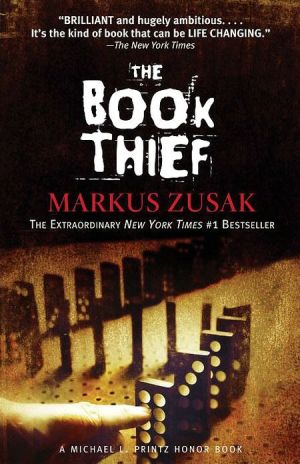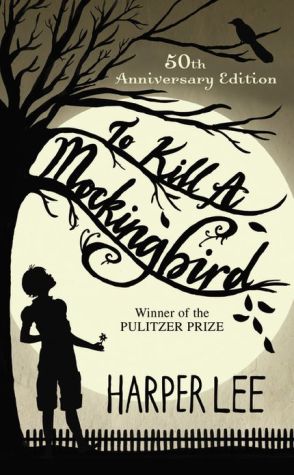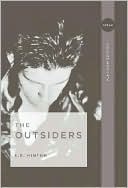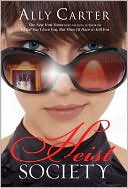Whale Talk
Intellectually and athletically gifted, TJ, a multiracial, adopted teenager, shuns organized sports and the gung-ho athletes at his high school until he agrees to form a swimming team and recruits some of the school's less popular students.\ \ Intellectually and athletically gifted, TJ, a multiracial, adopted teenager, shuns organized sports and the gung-ho athletes at his high school until he agrees to form a swimming team and recruits some of the school's less...
Search in google:
There's bad news and good news about the Cutter High School swim team. The bad news is that they don't have a pool. The good news is that only one of them can swim anyway.A group of misfits brought together by T. J. Jones (the J is redundant) to find their places in a school that has no place for them, the Cutter All Night Mermen struggle to carve out their own turf. T. J. is convinced that a varsity letter jacket—unattainable for most, exclusive, revered, the symbol (as far as T. J. is concerned) of all that is screwed up at Cutter High—will be an effective carving tool. He's right. He's also wrong.Still, it's always the quest that counts. And the bus on which the Mermen travel to swim meets—piloted by Icko, the permanent resident of All, Night Fitness—soon becomes the cocoon inside which they gradually allow themselves to talk, to fit, to bloom.Chris Crutcher is in top form with a cast of characters—adults, children, and teenagers—fighting for dignity in a world where tragedy and comedy dance side by side, where a moment's inattention can bring lifelong heartache, and where true acceptance is the only prescription for what ails us.Publishers Weekly"Featuring narrator T.J. Jones's darkly ironic appraisal of the high school sports arena, this gripping tale of smalltown prejudice delivers a frank, powerful message about social issues and ills," wrote PW in a starred review. Ages 12-up. (Dec.)
Chapter One\ In the end, write it down. Back up and find the story. Mr. Simet, my English and Journalism teacher, says the best way to write a story, be it fact or fiction, is to believe aliens will find it someday and make a movie, and you don't want them making Ishtar. The trick is to dig out the people and events that connect, and connect them. No need to worry about who's wearing Nike and who's wearing Reebok, or anybody's hat size or percentage of body fat. Like Jack Webb on the Dragnet series on Nick at Nite says, "Just the facts, ma'am. Just the facts."\ The facts. I'm black. And Japanese. And white. Politically correct would be African-American, Japanese-American and what? Northern European-American? God, by the time I wrote all that down on a job application the position would be filled. Besides, I've never been to Africa, never been to Japan and don't even know which countries make up Northern Europe. Plus, I know next to nothing about the individuals who contributed all that exotic DNA, so it's hard to carve out a cultural identity in my mind. So: Mixed. Blended. Pureed. Potpourri.\ Adopted.\ Big deal; so was Superman.\ And I like Superman, I was adopted by great people. The woman I call Mom - who is Mom - Abby Jones, was in the hospital following her fourth miscarriage (and final attempt) at the miracle of birth) where she met my biological mother, Glenda, right after my presumed bio-dad, Stephan, had assisted in my natural childbirth only to come eyeball-to-eyeball with the aforementioned UNICEF poster boy. A second-generation German-American married to a woman ofSwiss-Norwegian descent, he was a goner before my toes cleared the wet stuff. Any way he matched up the fruit flies, he couldn't come up with me. Because my mom is one of those magic people with the natural capacity to make folks in shitty circumstances feel less shitty, she consoled Glenda and even brought her home until she could get her feet on the ground. Evidently Glenda was as surprised as Stephan; she'd had a one-night stand with my sperm donor to get even for a good thumping and had no idea the tall black-Japanese poet's squiggly swimmer was the one in a billion to crash through to the promised land.\ Things sped rapidly downhill for Glenda as a single mother, and two years later, when she brought Child Protection Services crashing down on herself, getting heavily into crack and crank and heavily out of taking care of me, she remembered Mom's kindness, tracked her downa nd begged her to take me. Mom and Dad didn't blink - almost as if they were expecting me, to hear them tell it - and all of a sudden I was the rainbow-coalition kid of two white, upwardly mobile ex-children of the sixties.\ Actually, only Mom was upwardly mobile. She's a lawyer, working for the assistant attorney general's office, mostly on child-abuse cases. Dad likes motorcycles; he's just mobile.\ We never did hear from Glenda again, Mom says probably because the separation was too painful and shameful. Sometimes I find myself longing for her, just to see or talk with her, discover more about the unsettledness within me; but most of the time that ache sits in a shaded corner of my mind, a vague reminder of what it is not to be wanted. At the same time all that seems out of place, because I remember nothing about her; not what she looked like or the sound of her voice or even the touch of her hand. I do admit to having a few laughs imagining how history rewrote itself inside Stephan's head when my shiny brown head popped out.\ It's interesting being "of color" in a part of the country where Mark Fuhrman has his own radio talk show. My parents have always encouraged me to be loud when I run into racism, but I can't count on racism being loud when it runs into me. Very few people come out and say they don't like you because you aren't white; when you're younger it comes at a birthday party you learn about after the fact, or later, having a girl say yes to a date only to come back after discussing it with her parents, having suddenly remembered she has another engagement that night. Not much to do about that but let it register and don't forget it. I learned in grade school that the color of a person's skin has to do only with where their way-long-ago ancestors originated, so my mind tells me all racists are either ignorant or so down on themselves they need somebody to be better than. Most of the time telling myself that works. Once in a while my gut pulls rank on my mind, and I'm compelled to get ugly.\ I called "All News All Talk Radio" a couple of days after the first time I heard the spectacularly racially sensitive ex-L.A. detective giving Spokane and the rest of the Inland Empire the hot poop on big-time crime fighting. The talk show I called had featured the mayors of an eastern Washington and a north Idaho town declaring that the racist label put on this region is undeserved, blown out of proportion due to the presence of the Ryan Nations fort over in Hayden Lake, Idaho, and the existence of several small militias spread out between central Washington and eastern Montana.\ The mayors had departed when the talk-jock finally said, "We're talking with T.J. from Cutter, about fifty miles outside our great city."\ I said, "So this racist label, it's undeserved?"\ 'I believe it is," he said. "An entire region can't be held responsible for the ignorant actions of a few. Certainly you can't argue with that."\ "You're right," I said. "I can't. But if the racist label is about perceptions, and in this case, undeserved perceptions, why would you guys have the Mark Fuhrman show?"\ "Have you tuned into Mark's show?"\ "Not purposely," I said, "but I was scanning the stations and landed right on him."\ "How long did you listen?"\ "Long enough to convince myself it was really him, that you guys weren't just pulling my chain."\ "Then you heard a man who knows a lot about crime prevention and an accomplished professional radio man."\ I said, "His voice was okay."\ The jock said, "What's your point, T.J.?"\ "That if you guys are running the most powerful AM station in the region and you're worried about people's perceptions of that region as racist, you might think twice before you give one of the true icons of racism in this country two hours of drive-time radio every week."\ "We didn't hire Mark to talk about race relations. We hired him to talk about criminals and the criminal mind, and about the intricacies of police work. He's written books on the subject, you know."\ "You didn't hire him because of his famous name?"\ "No, sir, we did not."\ "So when you decided your listeners needed to learn about Spokane, Washington, police work, you figured you'd get better expertise from a dishonored ex-L.A. cop rather than some retired veteran Spokane cop who might have covered Spokane's streets for twenty-five or thirty years?"\ He said, "How old are you?"\ "What does that matter?"\ "Your voice sounds like a kid."\ "You tell me why that matters, and I'll tell you how old I am."\ "It matters because if you're too young, you might lack the experience to carry on this conversation intelligently."\ "I'm a fifty-six-year-old retired Spokane policeman." I said, and paused a moment. "Guess I don't have the voice for it." I hung up.
\ Publishers Weekly\ - Publisher's Weekly\ Crutcher's (Running Loose; Ironman) gripping tale of small-town prejudice delivers a frank, powerful message about social issues and ills. Representing one-third of his community's minority population ("I'm black. And Japanese. And white"), narrator T.J. Jones voices a darkly ironic appraisal of the high school sports arena. Despite his natural athletic ability (at 13, he qualified for the Junior Olympics in two swimming events), T.J. has steered away from organized sports until his senior year, when Mr. Simet, a favorite English teacher, implores him to help form a swim team for the school (and thereby help the teacher save his job). T.J. sees an opportunity to get revenge on the establishment and invites outcasts to participate on the team; he ends up with "a representative from each extreme of the educational spectrum, a muscle man, a giant, a chameleon, and a psychopath." As might be expected, he accomplishes his mission: his motley crew of swimmers is despised by more conventional athletes (and coaches). The swimmers face many obstacles, but their dedication to their sport and each other grows stronger with every meet. The gradual unfolding of characters' personal conflicts proves to be as gripping as the evolution of the team's efforts. Through T.J.'s narration, Crutcher offers an unusual yet resonant mixture of black comedy and tragedy that lays bare the superficiality of the high school scene. The book's shocking climax will force readers to re-examine their own values and may cause them to alter their perception of individuals pegged as "losers." Ages 12-up. (Apr.) Copyright 2001 Cahners Business Information.\ \ \ \ \ Publishers Weekly"Featuring narrator T.J. Jones's darkly ironic appraisal of the high school sports arena, this gripping tale of smalltown prejudice delivers a frank, powerful message about social issues and ills," wrote PW in a starred review. Ages 12-up. (Dec.)\ \ \ KLIATTThis ALA Top Ten Best Book for Young Adults was reviewed in KLIATT, March 2001: T.J. is a high school senior of mixed race—black, Japanese, and white—living in the almost all-white small town of Cutter in Washington. He's adopted, but his attitude is "Big deal; so was Superman," and he adores his adoptive parents. Neglect and abandonment by his birth mother has left him with a deep-seated rage and an urge to protect the weak of the world. T.J. is intellectually as well as athletically gifted, but he's always resisted joining any of the school's sports teams: "something in me recoils at being told what to do." When his English teacher asks him to start a swim team, however, T.J. sees the opportunity to help out some underdogs and to spit in the face of the town jocks. He puts together a team of misfits—one is mentally handicapped, one is obese, one is one-legged, and so on—and with the help of the teacher and a friendly man who sleeps in the local health club, the team goes on to triumph, in their own fashion, working hard and bonding as a group. Meanwhile, T.J. has made some powerful enemies, and matters come to a head when a mother and her abused multiracial daughter take refuge in T.J.'s house and an unexpected tragedy ensues. Crutcher (author of Ironman, Staying Fat for Sarah Byrnes and other YA novels) is one of the best YA authors around. Drawing on his experience as a family therapist and a child protection specialist, he understands the antiauthoritarian anger of teenage boys as well as the sports milieu he writes about so well. Here he tackles racism and prejudice as well as issues of violence, abuse, and forgiveness in a powerful story that will grab readers right away and havethem rooting for the appealing and heroic T.J. Told with passion and humor, this is a real winner. Some profanity and violence. KLIATT Codes: JS*—Exceptional book, recommended for junior and senior high school students. 2001, Random House, Dell Laurel Leaf, 220p., \ — Paula Rohrlick\ \ \ \ \ From The CriticsThe narrator of Whale Talk is a The Tao Jones (his given name and pronounced Dow Jones); he is Black, Japanese, and White. The son of a woman who abandoned him when she got heavily into crack and crank, he grew up as a child filled with rage. Now, thanks to the help of a good therapist and good, loving, ex-hippie adoptive parents, T. J. has turned out to a pretty decent and even-keeled human being. One thing he is not and will never be, though, is a conformist. The Tao Jones (T. J.) is particularly sensitive to injustice; when the high school bully and big deal football star taunts brain-damaged Chris Coughlin, who wears his dead brother's football letter jacket, T. J. seeks revenge. His clever weapon of choice is the creation of a high school swim (despite the fact that his school has no pool) so he can prove that a band of school misfits are capable of winning coveted letter jackets, just like the cocky football players. Chris Crutcher writes in a style that reminds me of Stephen King. Although the violence in the book may be unsettling to some, the work does manage to combine craziness and realism to underscore the impact of coming to terms with differences. The swim team, and the togetherness this band of unlikely characters enjoys, help school outcasts find the true acceptance and friendship they've never had before. Kids read Chris Crutcher (Staying Fat for Sarah Byrnes, Ironman, Athletic Shorts) because his works speak for them; he advocates in a manner that adults should pay attention to, as well. 2001, Greenwillow, 224 pp., \ — Len DeAngelis\ \ \ \ \ VOYACartoon character Pogo's words "We have met the enemy and he is us" chillingly describe Crutcher's latest book in which hatred simmers, boils, and burns its characters. Narrator-protagonist T. J. is multiracial—black/Japanese/white—intellectually and athletically gifted, and sarcastic, his words both hilarious and insightful. T. J. eschews school sports until linebacker Mike harasses mentally handicapped Chris for wearing his deceased brother's team jacket, donning an unearned letter and unwittingly affronting those whose letters were merited. When administrators and the football alumni president condoned Mike, T. J. could not. Three years ago, T. J. had been victimized by Rich, the alumni president, and Mike after hearing them brag of a does they had killed and talk of its still-living fawn. Adopted and anti-hunting, T. J. empathized with the orphaned animal, attempting to rescue it before the animal is killed by the men who then attacked T. J. His response to their cruelty is to wear his bloodied clothes to school for a week. His action was encouraged by his attorney mother, whose practice centers on child abuse cases, and his wise father, a victim of a tragic past and now an advocated for the abused. T. J. now cannily forms a swim team under the guidance of his mentor teacher, although the school lacks a pool. His team, which features "one swimmer of color, a representative from each extreme of the educational spectrum, a muscle man, a giant, a chameleon, and a one-legged psychopath" to further infuriate administrators, practices at a commercial pool using unorthodox methods. As the team swims toward their goal of each member receiving a letter in the sport, administratorswork toward denying them. Meanwhile, T. J.'s family receives custody of Rich's biracial child and becomes the target of his malicious and increasingly unstable behavior that stems from bigotry and anger. Readers should beware—although the ending is foreshadowed, it is shocking and horrifying, yet sadly realistic. Here "Whale Talk"—truth and self-knowledge—emerges, demanding characters' self-realization or change while demonstrating that bigotry plus hate will steal one's soul. Curiously this novel borrows heavily from other works—T. J., the team, and their teacher recollect Ironman (Greenwillow, 1995/VOYA June 1995); the swimming renews Stotan! (Greenwillow, 1986/VOYA April 1986); and the football mentality mirrors Running Loose (Dell, 1983/VOYA April 1983). The reliance on earlier themes might disappoint Crutcher fans, but will not deter them from devouring the book. Crutcher is at his darkest but also his funniest here, and the book conveys his most timely message—forgiveness, not revenge. VOYA CODES: 4Q 5P S (Better than most, marred only by occasional lapses; Every YA (who reads) was dying to read it yesterday; Senior High, defined as grades 10 to 12). 2001, Greenwillow, 219p, . Ages 16 to 18. Reviewer: Lisa A. Spiegel SOURCE: VOYA, June 2001 (Vol. 24, No. 2)\ \ \ \ \ Children's LiteratureIt is hard enough living with the name The Tao Jones, but seventeen-year-old T. J. is also partially black, white and Japanese. The only thing more diverse than his gene pool is the swim team he assembles for Cutter High. When Chris, a brain-damaged student, gets hassled by super-jock Mike for "illegally" wearing his dead brother's letter jacket, T. J. recruits "a muscle man, a giant, a chameleon, and a one-legged psychopath" to form a team on which Chris can earn his own jacket. Readers will love this unlikely lineup of misfits who practice at the All Night Fitness pool with their custom-tape mix blaring rock, rap and "Rudolph the Red-Nosed Reindeer." A multi-layered plot includes the history behind T. J.'s personal rage, his foster father's bizarre karmic destiny, and an alumnus who makes his mixed-race daughter scrub away her blackness with a Brillo pad. Some of the details seem unbelievable, but readers will be so anxiously anticipating the not-so-predictable showdown between jocks, coaches, and "Cutter Mermen" they won't care. Once again, Crutcher captures perfectly the emotions and humor of teens facing injustices. His sensitive treatment imparts dignity and depth to kids that are different while telling one whale of an entertaining story. 2001, Greenwillow, $15.95 and $15.89. Ages 12 up. Reviewer: Betty Hicks\ \ \ \ \ School Library JournalGr 8 Up-T. J. Jones, the mixed-race, larger-than-life, heroic, first-person narrator of this novel, lays out the events of his senior year, with many digressions along the way. The central plot involves T. J.'s efforts to put together a swim team of misfits, as he tries to upset the balance of power at his central Washington high school, where jocks and the narrow-minded rule. However, a number of subplots deal with racism, child abuse, and the efforts of the protagonist's adopted father to come to grips with a terrible mistake in his past. Crutcher uses a broad brush in an undeniably robust and energetic story that is also somewhat messy and over the top in places. T. J. himself is witty, self-assured, fearless, intelligent, and wise beyond his years. In fact, he has all of these qualities in such abundance that he's not an entirely plausible character. The novel's ending sweeps to a crescendo of emotions, as T. J.'s mentally tortured father saves a life and atones for past sins by diving in front of a bullet and dying in his son's arms. Young adults with a taste for melodrama will undeniably enjoy this effort. More discerning readers will have to look harder for the lovely passages and truths that aren't delivered with a hammer.-Todd Morning, Schaumburg Township Public Library, IL Copyright 2001 Cahners Business Information.\ \ \ \ \ Kirkus ReviewsHigh-school senior The Tao (T.J.) Jones has learned to live with his status as the only student of color in his small, rural high school, but he has never learned to accept the school's suffocating reverence for the athletic establishment. When his ultra-cool English teacher approaches T.J. to swim for the school's brand-new team, T.J. looks beyond the negatives-there is no competition-size pool in town, there are no other competitive swimmers in the school, and he absolutely hates organized sports-to one overwhelming positive: this is his way of giving the finger to the school's stultifying sports culture. He assembles a team of out-and-out losers that would make James Watt proud: "we have one swimmer of color, a representative from each end of the educational spectrum, a muscle man, a giant, a chameleon, and a one-legged psychopath. When I envision us walking seven abreast through the halls of Cutter High, decked out in the sacred blue and gold, my heart swells." There is no shortage of raw emotion in this story. The swim-team members indulge in lengthy informal therapy sessions on their bus trips to away meets, and one subplot involves T.J.'s growing attachment to a little biracial girl whose mother cannot protect her from the vicious racist attacks of her own stepfather-who also happens to be the school's biggest athletic booster. In the hands of a lesser storyteller, the tale would fall apart under its own weight, but Crutcher (Ironman, 1995, etc.) juggles the disparate elements of his plot with characteristic energy, crafting a compulsively readable story that rings true with genuine feeling and is propelled by exhilarating swimming action to anending that is bothcataclysmic and triumphant. A welcome return. (Fiction. YA)\ \








